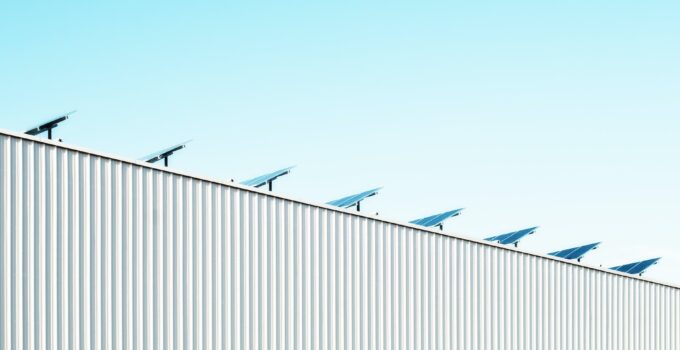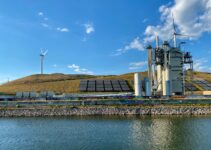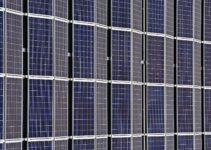Have you ever wondered how solar panels continue to generate electricity even during the night? It’s a fascinating concept that many people are curious about.
In this article, we will delve into the science behind solar panels and explore the intricate workings of these remarkable devices. By the end, you will have a comprehensive understanding of how solar panels work at night.
Understanding the Science behind Solar Panels
Before we unravel the secrets of solar power in darkness, it’s essential to grasp the science behind solar panels. Solar panels are composed of photovoltaic cells, which convert sunlight into electricity. These cells contain layers of semiconducting materials, typically silicon, that absorb photons from sunlight.
When photons strike the surface of a solar panel, they excite electrons within the semiconductor material, generating an electric current. This process, known as the photovoltaic effect, is the foundation of solar power generation.
Exploring the Role of Photovoltaic Cells
Photovoltaic cells play a crucial role in harnessing solar energy. These cells are responsible for converting sunlight into usable electricity. As mentioned earlier, they consist of semiconducting materials, usually silicon, which possesses unique electrical properties.
When sunlight hits a photovoltaic cell, it creates an electric field across the layers of the cell. This electric field forces the excited electrons to flow in a specific direction, creating a current. This current is then captured and directed through wiring, ultimately powering our homes and businesses.
Harnessing Solar Energy during Daylight Hours
During daylight hours, solar panels are in full operation, absorbing sunlight and converting it into electricity. As long as the sun is shining, solar panels continuously generate power. This is because the photovoltaic cells within the panels are actively converting photons into electrical energy.
Solar panels are strategically positioned to maximize exposure to sunlight throughout the day. By angling them towards the sun, the panels can capture as much sunlight as possible, ensuring optimal power generation.
The Function of Solar Batteries in Storing Power
One of the key components of a solar power system is the solar battery. Solar batteries serve the vital function of storing excess power generated by solar panels during daylight hours. This stored energy can then be used to power homes and businesses when the sun goes down.
When solar panels produce more electricity than is immediately needed, the excess power is directed to the solar battery for storage. This way, even when solar panels are not actively generating electricity, you can still tap into the stored power and enjoy a continuous supply of electricity at night.
Diving into the Functionality of an Inverter
Another crucial element of a solar power system is the inverter. The inverter serves as the interface between the solar panels and the electrical appliances in your home or business.
Its primary function is to convert the direct current (DC) electricity produced by the solar panels into alternating current (AC) electricity, which is compatible with household appliances.
During the day, solar panels generate DC electricity, which is then fed into the inverter. The inverter converts this DC electricity into AC electricity, which can be used to power lights, appliances, and other electrical devices. This seamless conversion ensures that you can use solar power to meet your energy needs even at night.
Integrating Solar Panels with Existing Power Grids
Solar panels can also be connected to existing power grids, allowing you to harness solar energy while remaining connected to the traditional electrical grid. This integration offers several benefits, including the ability to sell excess power back to the grid and access to electricity when solar power alone is insufficient.
When your solar panels generate more electricity than you need, the excess power can be fed back into the grid. This process is known as net metering and allows you to earn credits for the surplus electricity. During the night or on cloudy days when solar power production is limited, you can draw electricity from the grid to meet your needs.
Frequently Asked Questions about How Do Solar Panels Work at Night?
Q: Can solar panels generate electricity at night?
A: No, solar panels cannot directly generate electricity at night. They rely on sunlight to produce the necessary energy for power generation.
Q: How do solar panels work without sunlight?
A: Solar panels require sunlight to produce electricity. However, during periods of limited sunlight, such as cloudy days or during the night, solar batteries store excess power generated during the day for use later on.
Q: Do solar panels work in the winter?
A: Yes, solar panels do work in the winter. While sunlight may be less intense during winter months, solar panels can still generate electricity as long as they receive sunlight.
Q: What happens to excess solar power at night?
A: Excess solar power generated during the day is stored in solar batteries. This stored energy can then be used to power homes and businesses during the night.
Expert Advice on How Do Solar Panels Work at Night?
When it comes to understanding how solar panels work at night, it’s important to consider the overall functionality of a solar power system. While solar panels themselves cannot generate electricity in the absence of sunlight, the integration of photovoltaic cells, solar batteries, and inverters allows for a continuous supply of power even after the sun sets.
To optimize the performance of your solar panels at night, it is recommended to invest in high-quality photovoltaic cells and solar batteries. Additionally, regular maintenance and cleaning of your solar panels will ensure maximum efficiency and power generation.
By harnessing the power of solar energy, you can reduce your reliance on traditional energy sources, lower your carbon footprint, and save money on electricity bills. Embracing solar power is not only beneficial for the environment but also for your wallet.
In conclusion, solar panels work at night by relying on stored energy in solar batteries. The combination of photovoltaic cells, solar batteries, and inverters allows for a seamless transition from solar power generation during the day to stored power utilization at night.
By understanding the science behind solar panels and their integration with existing power grids, you can fully appreciate the wonders of solar power even in darkness.






